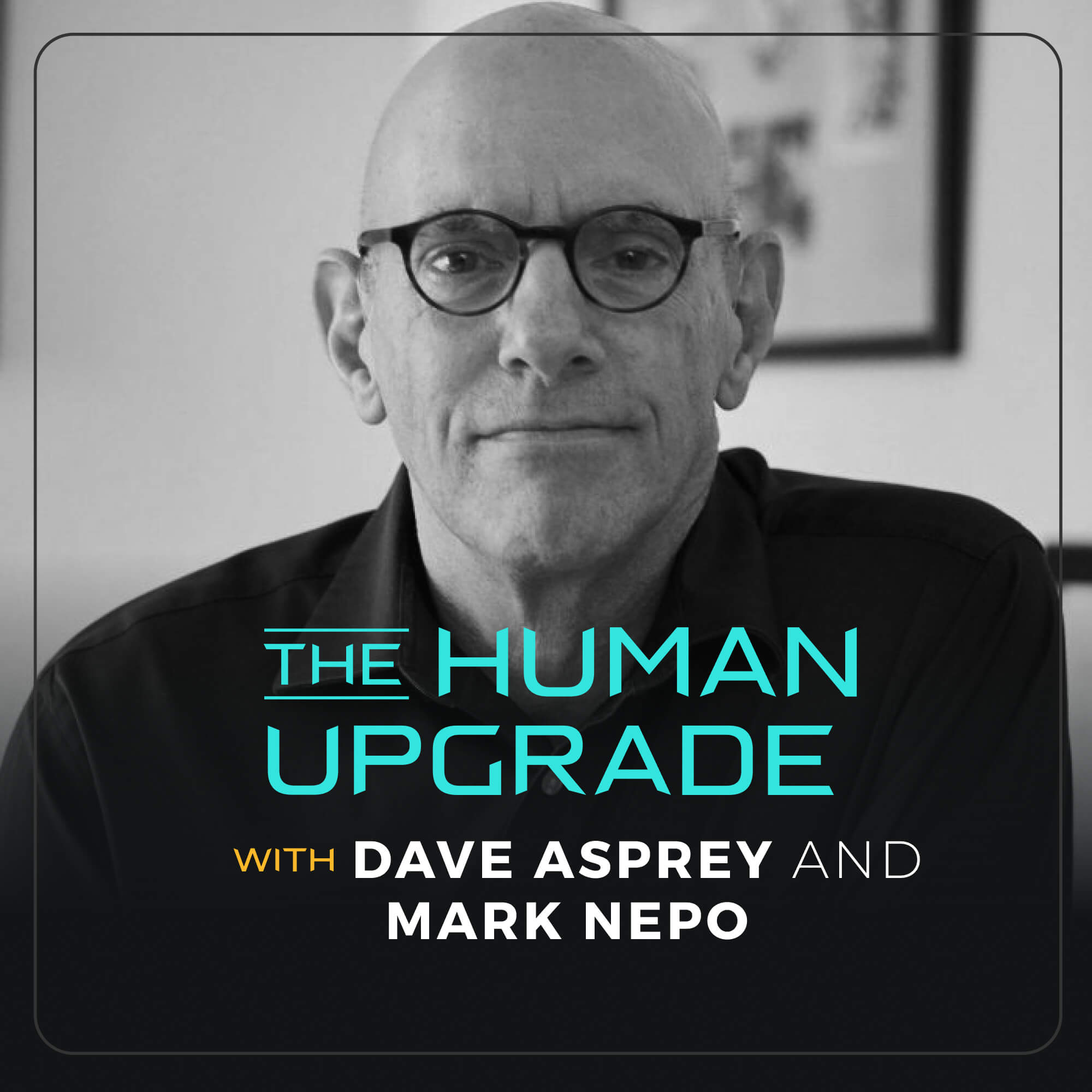
EP 1107
1107. Falling Down & Getting Up: Exploring the Path to Resilience
Join me for a profound conversation with Mark Nepo, one of the most spiritually influential people on earth, as we explore inner resilience, wisdom from adversity, and the fusion of science, health, and spirituality.
Subscribe To The Human Upgrade
In this Episode of The Human Upgrade™...
How about we have a conversation with one of the most spiritually influential living people on earth? Yes, you heard that right!
Today’s guest was bestowed with this honor by Watkins MindBodySpirit, and if that’s not impressive enough, AgeNation awarded him a Life Achievement Award. Today, we have the incredible privilege of sitting down with a true luminary in the world of spirituality, health, and resilience. His name is Mark Nepo, and he’s not just an authority on spiritual matters and poetry; he’s a living testament to the power of the human spirit.
Mark is no stranger to adversity; he’s a cancer survivor who has weathered life’s storms and authored dozens of books, including The Book of Awakening and Surviving Storms: Finding the Strength to Meet Adversity. In essence, he’s a true badass in resilience, and we’re here to delve into the fusion of science, health, and spirituality with a master of all these realms.
Mark’s new book, Falling Down and Getting Up: Discovering Your Inner Resilience and Strength, is a profound exploration of how we can navigate life’s challenges with acceptance and resilience.
Throughout our conversation, we’ll touch on the transformative impact of Mark’s battle with cancer, the wisdom he’s gleaned from our elders, the profound insights from indigenous healing traditions, and the incredible power of building resilience through pain. So, fasten your seatbelts, dear listeners, because this is a conversation that promises to touch your soul and leave you with valuable nuggets of wisdom for your own journey.
“Miracles are a process, not an event.”
Mark Nepo
02:11
The Spiritual Impact of Overcoming Cancer in His Early 30s
- Read: Falling Down and Getting Up by Mark Nepo
- Lymphoma in his brain in his early 30s
- Awareness of interoception and feeling when his tumor vanished
- What spiritual practices have guided his journey in life and as a poet
10:05
How Our Beliefs Influence Our Reality
- How his own energy and beliefs helped heal him from cancer
- Capturing the wisdom and knowledge of our elders
- His book writing process that involves co-creating with the world
- Does evil exist?
21:14
Navigating The Choice Between Love & Fear
- How the presence of duality affects our life’s meaning
27:11
The Invaluable Impact of Our Teachers & Healers
- The impact of master level healers on those who are sick or hurting
- What we can learn from indigenous traditions about the twin calls of healing
- How Mark found his teachers and mentors
37:14
How To Face Failure & Build Resilience
- Why the modern definition of success and failure isn’t very helpful
- What are dreams?
- Read: The Heart of the World by Ian Baker
- Developing faith in life to get through hard times
47:44
Navigating The Deeper Teachers Of Fear, Pain & Grief
- How to find resilience through pain
- What it truly means to be a teacher and transmute wisdom to others
- Building your capacity for self-awareness and acceptance
- The friction of being visible and the cost of being invisible
01:01:36
Unlock Your Inner Wisdom
- Introducing people to their own wisdom and gifts through his retreats
- How our inner and relational work contributes to the betterment of the whole society
Enjoy the show!
LISTEN:
“Follow” or “subscribe” to The Human Upgrade™ with Dave Asprey on your favorite podcast platform.
REVIEW:
Go to Apple Podcasts at daveasprey.com/apple and leave a (hopefully) 5-star rating and a creative review.
FEEDBACK:
Got a comment, idea or question for the podcast? Submit via this form!
SOCIAL:
Follow @thehumanupgradepodcast on Instagram and Facebook.
JOIN:
Learn directly from Dave Asprey alongside others in a membership group: ourupgradecollective.com.
Subscribe To The Human Upgrade
Similar Episodes

BOOKS
4X NEW YORK TIMES
BEST-SELLING SCIENCE AUTHOR
Smarter
Not Harder
Smarter Not Harder: The Biohacker’s Guide to Getting the Body and Mind You Want is about helping you to become the best version of yourself by embracing laziness while increasing your energy and optimizing your biology.







